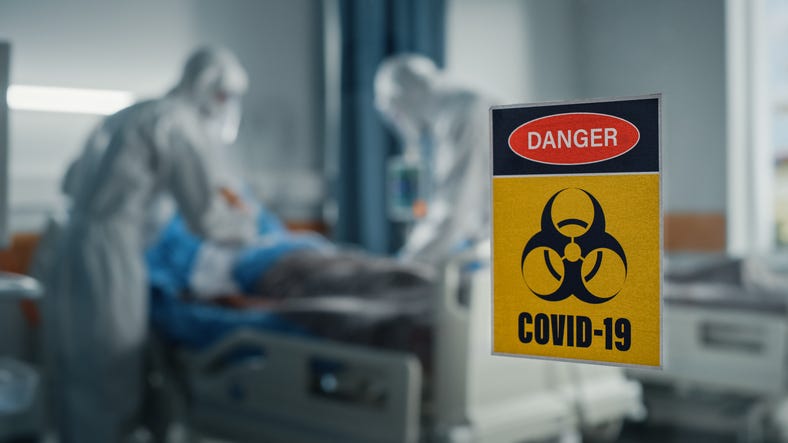
The Omicron variant continues to spread throughout the country and the globe, with many places seeing all-time highs in daily COVID-19 cases. This has some experts worried about vaccines and recommending variant-specific shots.
However, not everyone is sold on variant-specific vaccinations and booster shots just yet. Dr. Anthony Fauci said that he does not think there is a need for these types of shots, and Dr. Michael Osterholm agrees.
"I think we still have more to learn yet just about how much [current vaccines] protect," Osterholm said.
The doctor spoke with News Talk 830 WCCO and went on to say that the information coming out right now is promising and shows that while current vaccines may still allow for milder infections, they are stopping serious illnesses and reducing hospitalization.
"It's very important to understand that even preventing serious illness hospitalizations and deaths is an incredible, incredible advance," Osterholm said. "I urge everyone right now if there was ever a reason to get vaccinated, it's now. Delta is impacting this community in ways that are just shocking and scary."
The doctor added that Omicron is coming, giving a prediction that he knows people aren't going to want to hear.
"I think that Omicron is going to come into this country like a viral blizzard, and I think the next three to five weeks could be dramatic with lots of people getting infected with it," Osterholm said. "Even if you have been previously vaccinated with two doses, it will be mild, and that's what we want if you are going to be infected at all."
While infections may be mild, Osterholm added that the storm of Omicron will still seriously affect hospitals and workers who may also get sick.
"We have hospitals right now in the Twin Cities where you are having 80 or more people at a time [waiting] at least 12 hours before they can be seen in an emergency room," Osterholm said. "That's because they are infected with COVID."
Osterholm pointed out that other questions arise if large portions of the population start to test positive for Omicron but have milder symptoms.
"Does that mean you stay home then for it? What are we gonna do?" Osterholm asked. "I worry that we could take out large segments of critical workforces [like] first responders who could very easily get infected with this over the next three to four weeks."
When it comes to what should be expected from the virus, Osterholm says that even if early reports suggest the variant is causing only mild cases, people still need to get vaccinated to protect themselves.
"I can tell you the days are gonna get worse ahead of us, and now is the time to get your protection and every day counts because you want the protection to mature in your body with the vaccines," Osterholm said. "So please, don't wait another day."



